Shop News
-
25/11/2025Ganoderma Benefits
-
07/02/2025Colds & Flu - treatment and prevention
-
24/01/2025Ginseng - Nature's anti-inflammatory
-
23/01/2025Curcumin Benefits
-
02/05/2024Allergies Tradicional Chinese Medicine
-
12/03/2024Food Combining and Chinese Medicine
-
23/08/2023Phytoestrogens
-
05/06/2023Ginseng Benefits
-
02/06/2023Aumento de precios de la marca Blue Poppy
-
20/07/2022Infertility and Chinese Medicine
-
10/05/2022Allergic Rhinitis
-
24/03/2022TCM Obesity and Its Causes
-
23/03/2022Cancer Prevention and Diet
-
26/01/2022Medicinal Mushrooms
-
18/12/2021Christmas Remedies
-
09/07/2021CANDIDIASIS
-
03/03/2021Chinese Herbal Medicine formula studied to improve cancer therapy
-
12/01/2021The benefits of Xiao Yao San
-
15/09/2020Coronavirus Protocol (summary)
-
01/06/2020TCM Principles for Weight Loss
-
12/02/2020Take Good Care of Your Qi
-
01/01/2020Cordyceps Sinensis Benefits
-
01/12/2019Prevention & Treatment of Colds & Flu
-
27/04/2019ANXIETY - causes and treatments
-
26/03/2019Prostatitis and Chinese Herbs
-
01/03/2019What is an Adaptogenic Herb?
-
05/02/2019New Jade Herbal Formulas
-
09/12/2018The Shen of the Heart
-
23/08/2018Hyperthyroidism and Hypothyroidism
-
05/07/2018FOCUS ON A REMEDY: WARM THE MENSES
-
04/04/2018Treating Insomnia With Chinese Herbal Medicine
-
25/03/2018Cordyceps Sinensis research
-
01/03/2018Chinese Herbal Medicine for Panic Attacks
-
07/11/2017BI SYNDROME
-
01/09/2017Chemotherapy and Anti-Oxidants
-
05/03/2017Lumbar Disc Herniation
-
31/01/2017Treatment Principles in Exterior Invasions
-
21/10/2016Healthy Aging and Oriental Medicine: Qi is the secret
-
23/09/2016Horny Goat's Weed Benefits
-
25/06/2016Ginkgo Biloba Benefits
-
23/03/2016Blood Stasis
-
23/01/2016CHRONIC FATIGUE SYNDROME
-
28/12/2015TONICS
-
24/10/2015A CASE HISTORY OF CHRONIC BRONCHITIS
-
23/09/2015Ganoderma Lucidum reduces obesity in mice
-
01/07/2015The Five Elements and Diet in Chinese Medicine
-
23/05/2015Daoist Sexual Practices
-
21/02/2015DEPRESSION
-
22/01/2015GLAUCOMA
-
20/12/2014ENDOMETRIOSIS
-
28/11/2014POLYCYSTIC OVARY SYNDROME
-
21/08/2014Ear infections and antibiotics
-
24/06/2014FOCUS ON A REMEDY: CHEMO-SUPPORT
-
21/03/2014Stomach-Yin Deficiency and Jade Spring
-
21/02/2014JOY, AN EMOTIONAL CAUSE OF DISEASE?
-
17/01/2014SEXUAL LIFE IN CHINESE MEDICINE
-
19/12/2013ON STAGNATION OF LUNG- AND HEART-QI
-
14/11/2013THREE TREASURES REMEDIES FOR PAIN
-
23/10/2013HEADACHE CASE HISTORY
-
12/07/2013Giovanni Maciocia Clinical Tip: Arouse Power
-
19/04/2013Case history - Chronic constipation
-
18/06/2012Herbs for the treatment of Anorexia
-
09/04/2012REMEDY OF THE MONTH: CLEAR YANG
-
28/04/2011Lingzhi slows progress of Alzheimer’s
-
18/10/2010European Legislation for natural products
-
19/09/2010700-year-old Chinese medicine can treat depression...
-
01/09/2009Swine Flue
INTRODUCTION
Anyone can get cancer at any age; however; about 77% of all cancers are diagnosed in people aged 55 and older. Since this article focuses only on cancer prevention through diet we need to emphasize the importance of including lifestyle risk reductions in your cancer prevention program as well. We hope the information contained in this article helps you in your quest for maintaining a healthy cancer-free life.
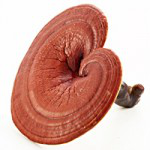 HERBAL AND NUTRITIONAL SUPPORT
HERBAL AND NUTRITIONAL SUPPORT
• Reishi (Ganoderma), shiitake and maitake mushrooms - contain polysaccharides- plant chemicals that have been found to be effective in preventing tumor growth and in strengthening the immune system. Maitake mushrooms stimulate immune function and also inhibit tumor growth. Shiitake contains the polysaccharide lentinan which is known to boost the activity of the immune system. Shiitake fosters many immune-enhancing activities including stimulation of macrophages, increased cytotoxic activity of macrophages, increased production of interleukin-1 and -2, increased T-lymphocyte production, and enhanced CD-4 cell function.
• Astragalus: A 1990 study found that taking astragalus daily increased the body’s ability to kill cancer cells by tenfold. Shi Quan Da Bu Wan, a Chinese formula containing astragalus and ligusticum, has been proved most effective in enhancing cellular immunity, specifically interleukin production by the body.
• Ginseng (Panax) - can not only stop the growth of malignant liver cells in the test tube, but can turn them back to normal. In animal studies panax ginseng has been shown to inhibit metastases to the lung and liver and to reduce elevated platelet and fibrinogen levels caused by the tumor cell lines.
• Atractylodes- contains 3 cancer-inhibiting components which have demonstrated the strongest activity against esophageal cancer.
• Chinese skullcap (Scutellaria baicalensis) - inhibits many viruses including tumor viruses and the HIV virus by inhibiting reverse transcriptase. It is also anti-inflammatory and induces cell death in a number of cancer cell lines including two sarcomas and cervical cancer. (Yance, 1999)
• Codonopsis stimulates the growth of red blood cells, enhances T-cell trans formation and stimulates phagocytosis.
• Coenzyme Q10 (CoQlO) - is recommended for anyone with cancer who is on the chemotherapeutic drug Adriamycin. Adriamycin depletes CoQlO levels in the heart muscle, which can lead to heart damage (this is a serious side effect of this drug). When CoQlO is administered in conjunction with this drug, heart damage does not occur.(Yance, 1999)
• Licorice (Glycyrrhiza glabra) - contains glycyrrhizin which posses blocking ability against tumor-promoting agents. A recent study in Japan demonstrated that glycyrrhizin can inhibit liver cancer caused by hepatitis. (Yance, 1999; Kumada, 2002)
• Chai Hu Shu Gan San (Minor Bupleurum Formula) . This formula has been found extremely effective at inhibiting cancer by enhancing the immune system, inducing apoptosis and inhibiting angiogenesis. It is most useful in breast and liver cancers, but can also be used to treat colon cancer. Bupleurum saponins exhibit anti-inflammatory activity similar to prednisone. (Yance, 1999)
• Medicinal plants that have exhibited antitumor action due to modulation of programmed cell death and arrested proliferation are trichosanthes, soy, garlic, ginger and green tea.(Thatte, 2000)
USEFUL VEGETABLES 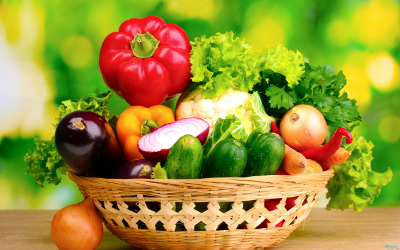
• Asparagus- has a cleansing effect on the lymphatic system and kidneys. It contains protein compounds called histones which are believed to act as cell-growth normalizers on cancer-cell division.
• Avocados- are perhaps the best overall source of essential fatty adds and glutathione and are a great source of protein. Avocados are easily digested, making them an ideal food for people recovering from surgery or for the very sick
• Broccoli, cauliflower, Brussels sprouts, apples, grapefruit, apricots and cherries - contain D-glucarate. a natural compound produced in small amounts by humans and some plants. It encourages the detoxification of environmental carcinogens and estrogenic tumor promoters.
• Broccoli, Brussels sprouts, kale, cauliflower, carrots and green onions contain a potent anticancer compound called sulphoraphane which according to scientists at John Hopkins medical school greatly increases anti-cancer enzyme systems in cells. They also contain isothiocyanates which enhance glutathion S-transferase, which helps in carcinogen excretion. Broccoli sprouts contain up to 100 times more sulforaphane than does broccoli itself. Another compound found in broccoli and other cruciferous vegetables called indole-3-carbinol has been shown to increase the excretion of a form of estrogen called 2 hydroxyestrone, which is linked to breast cancer.
• Broccoli and onions - contain quercetin. a flavone which has a cancer inhibiting effect by preventing a defect in the tumor suppressor gene p53. Quercetin also inhibits the tumor producing PGE-2 series by blocking proflammatory reactions in the body.
• Broccoli contains dithiolethiones which trigger the formation of glutathione S transferase, which may prevent carcinogens from damaging a cell’s DNA.
• Carrots, sweet potatoes, collard greens, cantaloupe, squash, apricots, fresh pumpkin, kale, spinach, mangos, papayas and yams - contain beta-carotene which is considered one of the most promising anti-cancer agents. In one study the more beta-carotene men got in their diet the less lung cancer they developed. It may also prevent a second tumor in patients who have been cured of an initial cancer but now stand at an increased risk of developing new cancers in the upper part of the digestive tract. Carotenoids are best assimilated if taken with a fat such as flaxseed oil or olive oil.
• Garlic, onions, leeks, and shallots (album vegetables). According to the National Cancer Institute garlic is one of the best foods for protection against cancer. It contains the anti-cancer mineral selenium . which stimulates white blood cell production and induces apoptosis (cancer cell death). Alliums contain compounds that stimulate the production of enzymes that neutralize the free radicals linked with cancer. Alliums contain saponins.which prevent cancer cells from multiplying and they also contain allyl sulfides which increase the production of glutathione S-transferase and other enzymes that enhance carcinogen excretion.
• Garlic, onions, Brazil nuts. whole grains and greens - contain selenium. which causes cancer cells to die before they spread, repairs damaged DNA, protects against free radicals and aids the body’s natural detoxification process.
• Green vegetables, chlorella and spirulina - contain chlorophyll which is an antigenotoxin that inhibits the mutagenic activity of certain chemicals. According to one study published in the journal Mutation Research in 1989, chlorophyll proved to be a more effective antimutagen than all known anticancer vitamins, including vitmains A, C and E.
• Potatoes - are a rich source of alpha lipoic acid – a powerful antioxidant which strengthens and regenerates other antioxidants in the body, especially vitamin E. Biochemist Richard Passwater, Ph.D. suggests that lipoic add may even inhibit the activation of the gene that triggers cancer growth in cells. Potatoes also contain a diverse amount of polyphenolic compounds and protease inhibitors and are a great source of vitamin C.
• Red peppers, fresh orange juice, broccoli, apple juice, green peppers, grapefruit juice, cranberry juice, papaya and fresh strawberries contain vitamin C which fights free radicals. Vitamin C appears to offer some protection against all cancers.
• Tomatoes, watermelons, red peppers, and carrots contain lycopene which may explain a recent Italian study that found that people who ate raw tomatoes at least 7 times a week halved their risk of several cancers compared to those who ate tomatoes no more than once a week.
• Tomatoes, green peppers, strawberries and carrots - contain p-coumaric and chlorogenic acids which hook onto nitric oxides in the foods we eat and spirit them out of the body before they can form cancer causing nitrosamines.
• Watercress, Chinese cabbage and turnips - contain phenethyl isothiocyanate which can prevent nicotine-induced lung cancer.
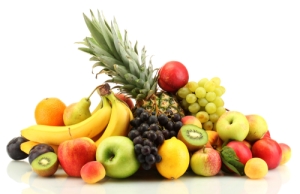 USEFUL FRUIT
USEFUL FRUIT
• Citrus fruit peels - contain a remarkable anti-cancer substance called D-limonene.Small bits of organic orange peel go well in salads or can be added to any tea. Be sure to cover the tea as it seeps so that the aromatic oils don’t escape.
• Cranberry- contains the anti-cancer constituent, proanthocyanidin. which has an anti-oxidant capability ten times greater than that of vitamin E.
• Figs - contain benzaldehyde which has been shown experimentally to decrease drastically the uptake of thymodine and adenine which leads to a decreased level of ATP within cancer cells, while having no effect on normal cells. It appears it can arrest tumor progression and have a paralytic effect on tumor growth.
• Fruit - contains caffeic acid which enhances production of enzymes that make carcinogens more water-soluble. Fruit also contains ferulic add which binds to nitrates in the stomach preventing production of carcinogenic nitrosamines.
• Grapefruit - contains the flavonoid naringenin which slows the growth of human breast cancer cells.
• Grapes, many berries and some nuts contain a phytoalexin component calledresveratrol which has shown cancer chemopreventive activity. Resveratrol has been found to act as an antioxidant, antimutagen and anti-inflammatory. It has also been shown to inhibit the development of breast cancer and induce antiprogression activity in human myelocytic leukemia.
• Pomegranates, grapes, strawberries, raspberries and nuts contain ellagic acid which blocks the body’s production of enzymes used by cancer cells. In one study an extract of Concord grapes was shown to be as effective as the cancer drug methotrexate in slowing tumor growth. Ellagic acid is particularly effective in the inhibition of lung cancer caused by tobacco.
• Red grapes (especially the seeds), blueberries, blackberries, cherries and grapes-contain oligomeric proanthocyanidins. known as OPC’s, which help to protect DNA from free radicals due to radiation and chemicals and slow down the mutation of cancer cells.
• Tangerines - contain tangertin which inhibits cell-endothelial adhesion, a very important step in the metastatic process of cancer.
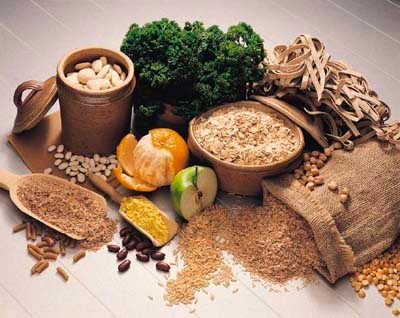 USEFUL GRAINS, LEGUMES AND OTHER FOODS
USEFUL GRAINS, LEGUMES AND OTHER FOODS
• Barley, bran. brewer’s yeast, brown rice, chicken, dates, green leafy vegetables, legumes, lentils, milk, mushrooms, oranges, split peas, root vegetables, salmon, tuna, wheat germ, whole grains and whole wheat contain folic acid which increases the production of white blood cells crucial in the defense against cancer. Folic acid in dark green leafy vegetables, oranges and liver may act together with vitamin B12 to prevent injuries to lung tissue and retard the development of cancer among cigarette smokers.
• Eggs - preferably organic eggs, are one of the best protein foods for people with cancer. Eggs contain all eight essential amino acids and are rich in essential fatty acids, vitamins, minerals, glutathione, sulfur and phospholipids. They are best prepared slow cooked or poached. One or two can be eaten once or thrice a week.
• Fish. A recent study has shown that omega-3-rich fish oils impede angiogenesis and reduce tumor invasiveness. Although a diet high in animal protein is not recommended for some people moderate portions once or twice a week can contribute to a well-rounded diet.
• Fiber from fruits, vegetables, beans and whole grains. Since 1980 25 out of 32 studies have shown that fiber protects against colon cancer.
• Olive oil - does not oxidize easily and is also a good source of squalene. the most potent inhibitor of angiogenesis. Buy only unrefined cold-pressed polyunsaturated vegetable oils but do not use them in cooking.
• Sardines, spinach and peanuts - contain CoQ10 which protects against cancer by strengthening the immune system and zapping free radicals.
• Soybeans, chickpeas and other legumes - contain protease inhibitors which reduce certain enzymes in cancer cells.
• Soy products. Fermented soybean products such as miso, shoyu, tempeh and natto contain cancer prevention properties that exceed that of unfermented soybeans, soy milk and tofu. Fermented soy products are rich in isoflavones, including genistein, which has been shown to block the growth of a number of cancers.
FOODS TO AVOID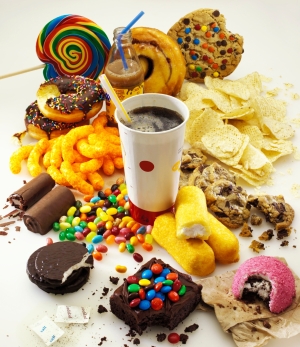
• Avoid beef. pork and lamb; processed meats and liver. In a large study at Harvard it was shown that the relative risk of colon cancer in women who ate beef, pork, or lamb as a main dish every day was about two-and-a-half times that of women who ate such foods less than once a month. Processed meats and liver were also associated with increased risk, whereas fish and chicken without skin were related to decreased risk. The conclusion was that a high intake of animal tat increased the risk of colon cancer.
• Avoid all processed fats and oils or any foods containing processed oils including hydrogenated or partially hydrogenated products. Trans fats or hydrogenated oils found in margarine and vegetable oils are linked with an increase in breast cancer. Avoid canola oil, safflower oil, corn oil, soybean oil, sesame oil as well as margarine. Avoid all commercial cookies, crackers, snack foods, frozen foods, deli foods, mayonnaise, fried foods and all foods labeled “partially hydrogenated.”
• Avoid frying, barbecuing or broiling meat, poultry or fish - especially when using polyunsaturated fats such as safflower or corn oil as it can produce potential carcinogens called heterocyclic amines which have been linked with many forms of cancer. If you do occasionally fry food, use olive oil or butter and do not cook to a point where your food becomes burnt or blackened.
• Avoid refined carbohydrates such as white sugar and white flour. They can cause abnormally high levels of blood glucose, a common factor in cancer. The excess glucose feeds the fermentation process of cancer cells and suppresses the immune system. Elevated glucose levels are seen three to eight times more often in people with active cancer. A study on diet and breast cancer showed a relationship between an excess of starch intake (refined pasta and bread) and breast cancer.
• Cancer patients should avoid coffee. For those in good health, however, organic coffee is fine in moderation.
• Cancer patients should avoid alcohol. Alcohol depletes glutathione levels and stresses the liver. For healthy individuals a glass of organic red wine with a meal is fine. Wine is a rich source of two very important anti-carcinogens – PCOs and resveratrol.
• Do not smoke. Countless studies have shown significant increase in the risk for cancers of the lung, bladder, esophagus, stomach and pancreas in smokers as compared to nonsmokers.
